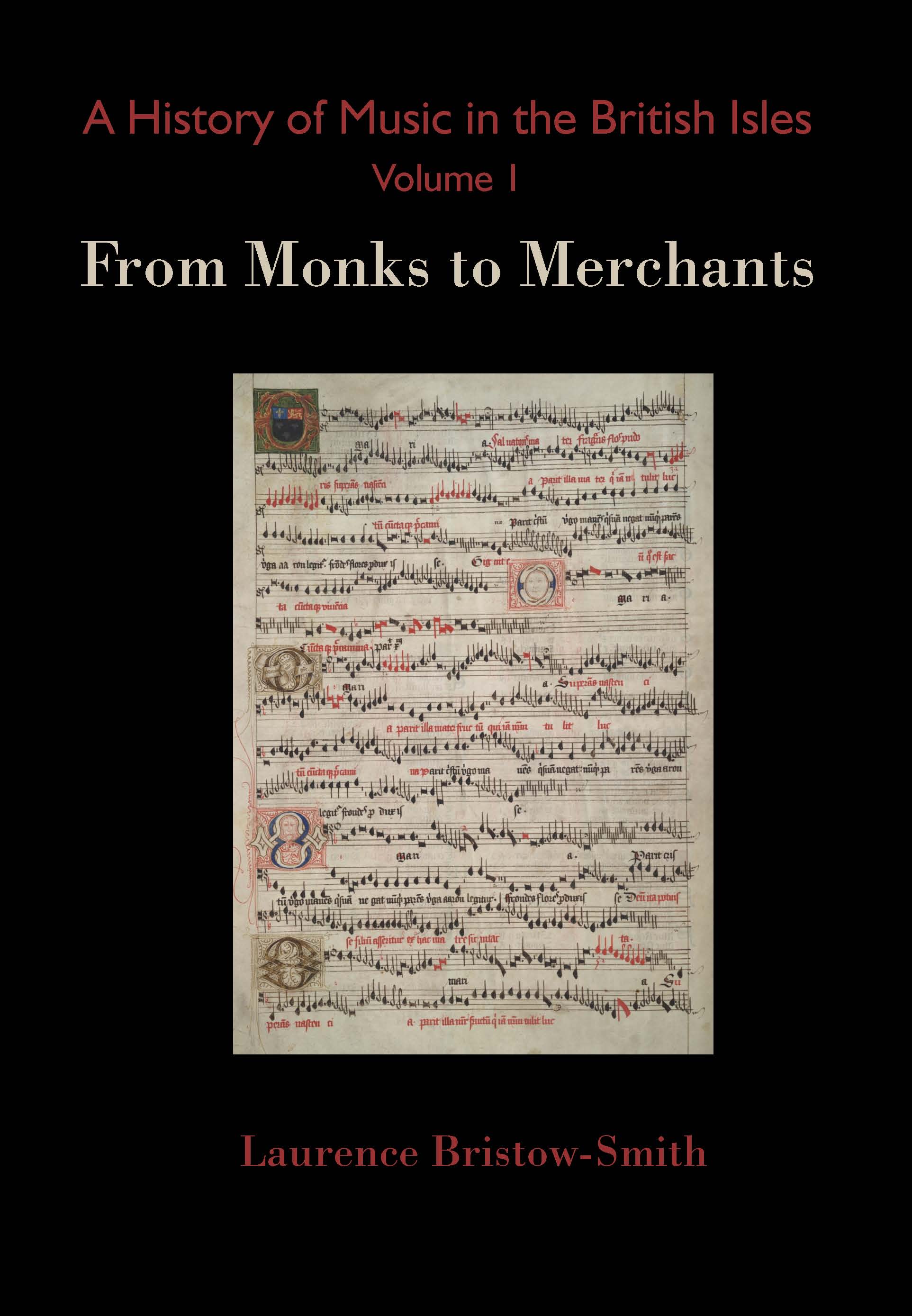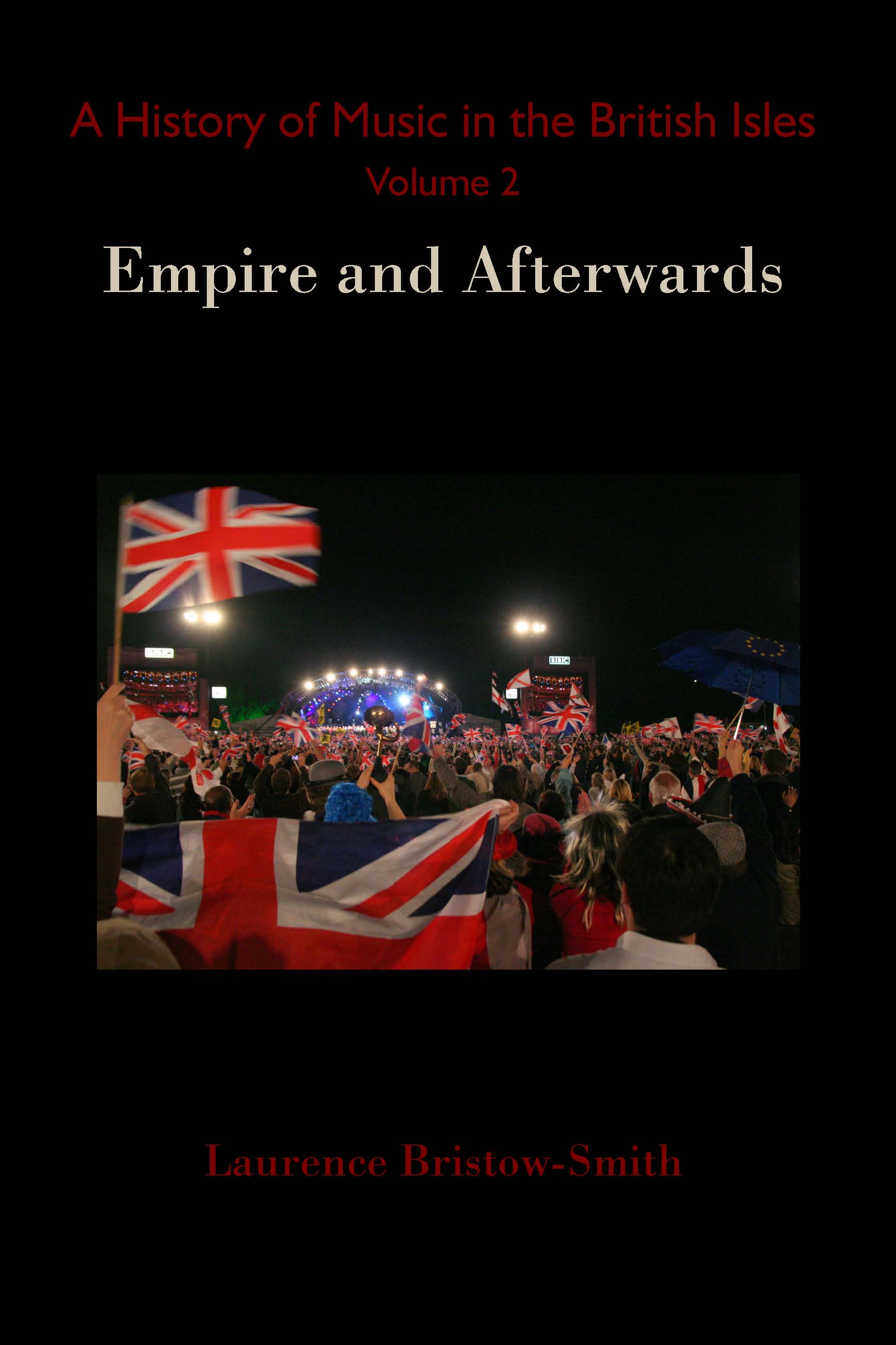Beginning with the discovery of a set of pipes dating from about 2000 BC in an Irish bog, it follows the evolution and development of music in Britain up to the end of the twentieth century. It chronicles the lives and achievements of the composers and performers, the promoters and impresarios, the conductors and critics, who have shaped our musical life. It discusses the great works that everyone knows and many of the lesser ones which deserve to be better known. And it sets the whole story against the background of religious, social, political and technological change in British society down the ages. This is a book that will appeal to readers with all levels of musical knowledge and interest – from the musically-minded and musically-informed to those seeking an accessible introduction to the subject.
Volume One, From Monks to Merchants, charts developments up to 1800. Celts and Romans, Saxons and Normans all brought music with them. Kings and queens, cardinals and archbishops saw music as a useful means of glorifying themselves and pursuing their religious and secular ends. Patrons saw their wealth and position reflected in the music they commissioned. Promoters and managers saw a chance of getting rich.
Volume Two, Empire and Afterwards, takes the story through the vibrant 19th and 20th centuries, covering what is known as the English Renaissance, and the impact of two world wars. It ends with pop and rock groups vying with each other to exploit new technologies and the new media.
Together they encompass the rich tradition of church music and secular art music; folk music from the countryside and folk music from the industrial and mining towns; popular song from the pleasure gardens and the music halls; ballet, opera and stage musicals, and place them in the wider context of the evolving economic, political and social history of the British Isles.
— Philip Olleson, Emeritus Professor of Historical Musicology, University of Nottingham
Readers’ comments from Amazon:
For anyone interested in the history of British
music, whether as a student, musician or concertgoer, this handsome
two-volume set works brilliantly to make the rich tradition of British music
not only accessible, but also disarmingly simple and utterly engrossing.
—
NSDG
Technically competent, well-researched and
authoritative history of British music,
but - surprise! - it is also
immensely readable — Dexter
Bristow Smith writes with enormous fluency. These two
volumes are concise and accessible and provide a fascinating insight into
our rich and diverse musical heritage.
— Damian Leeson
A comprehensive study that is both educational and a
great read.
It will be a valuable companion for many years. — Adrian Abbott
Bravo Sir! If I could throw a bunch of flowers from
here to wherever you live I would do so.
—
Stephen Pern
About the
author:
When Dr Laurence Bristow-Smith was twelve, a peripatetic music
teacher came to his school to demonstrate how to play brass instruments. It
was a moment that changed his life: he was seized with a desire to play the
trombone. He played in his school orchestra and in the Kent Youth Orchestra
under Bela de Csillery. He was not very good, but the experience left him
with a lifelong passion for music. He recalls:
‘I was thirteen and
sitting on the steps of the nave in Canterbury Cathedral with the Kent Youth
Orchestra. We had played Elgar’s Enigma Variations and then
Sibelius’s glorious Seventh Symphony. That was when I first sensed some kind
of link between music and the culture that produces it. Only when I was
approaching sixty and had just returned to Britain after years of living
abroad did I decide to explore that link. The result is not a thesis, but a
story full of unexpected twists and turns and interesting people whom I’d
like to have met and had dinner with.’
In the heady days of the 1970s,
Laurence ran
discos and folk clubs in Newcastle-upon-Tyne. His subsequent career as a
diplomat, which took him all over the world, saw him offering help and
support to groups and artists as diverse as the Moroccan folk group Nass el
Ghiwane; a Tibetan dance troupe; a Chinese opera company; Opera North; La
Scala Ballet School; and the European Union Youth Orchestra. Together with
the late Kenny Craddock, Laurence also wrote a stage musical, Spooner,
and songs which have been recorded by artists including Liane Carroll and
Fairport Convention.
Laurence Bristow-Smith’s previous publications include Landscapes for the Turning Earth,
a study of the life and work of the artist, Alan Rankle; and
Half-an-Eye
on History, a biography of Harold Nicolson, which is also published by The Letterworth Press.
Both volumes are clothbound hardbacks in tear-resistant full-colour jackets
From Monks to Merchants ISBN 978-2-9700654-6-3
424pp. Price £33, US$44, 36 euros
Empire and Afterwards ISBN 978-2-9700654-7-0
520pp. Price £36, US$48, 40 euros
Available as e-books from 1st October 2018:
From Monks to Merchants
ISBN 978-2-9700654-8-7
List price £15, US$20, 17 euros
Empire and Afterwards ISBN 978-2-9700654-9-4 List price £18, US$24, 20 euros

